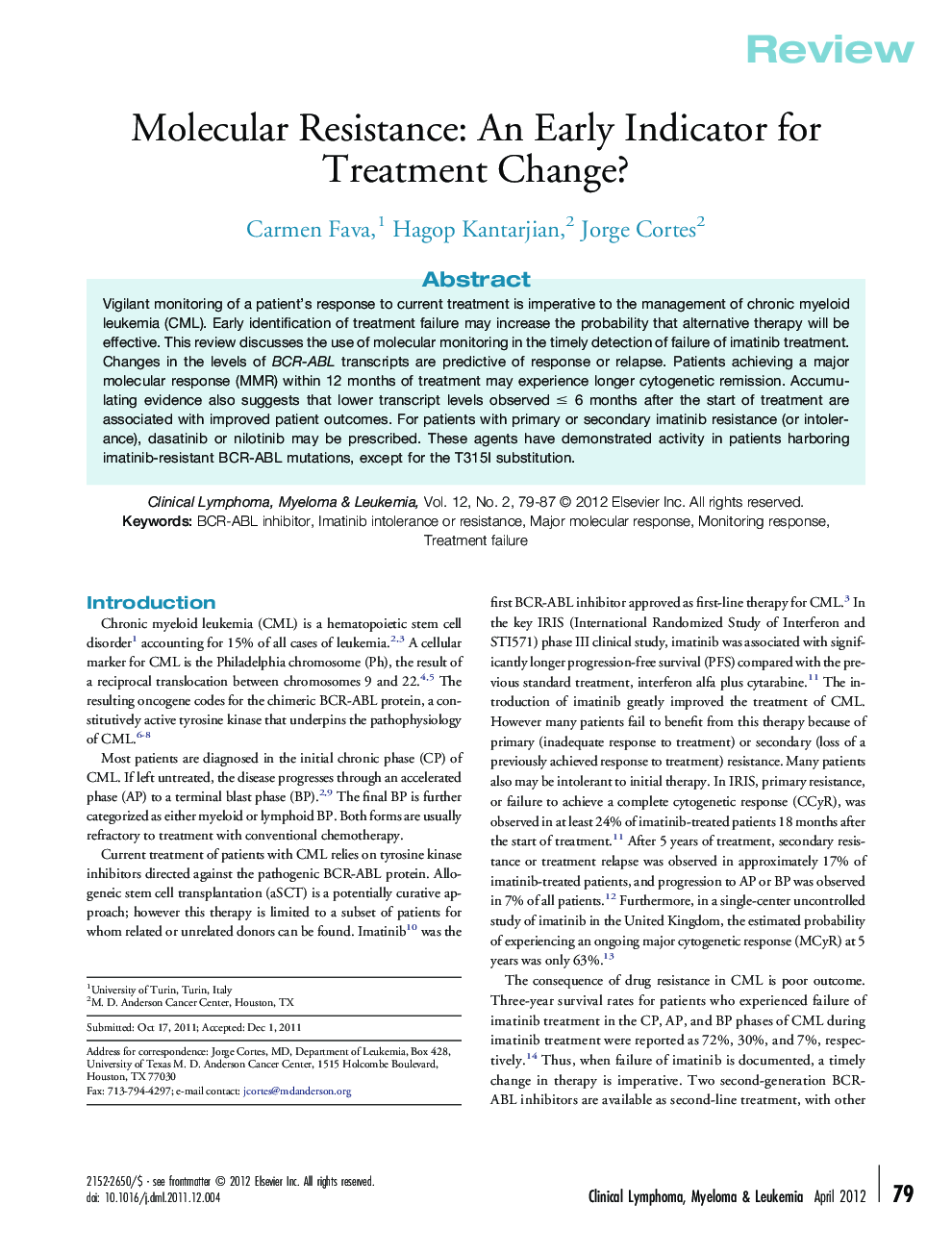| Article ID | Journal | Published Year | Pages | File Type |
|---|---|---|---|---|
| 2755009 | Clinical Lymphoma Myeloma and Leukemia | 2012 | 9 Pages |
Vigilant monitoring of a patient's response to current treatment is imperative to the management of chronic myeloid leukemia (CML). Early identification of treatment failure may increase the probability that alternative therapy will be effective. This review discusses the use of molecular monitoring in the timely detection of failure of imatinib treatment. Changes in the levels of BCR-ABL transcripts are predictive of response or relapse. Patients achieving a major molecular response (MMR) within 12 months of treatment may experience longer cytogenetic remission. Accumulating evidence also suggests that lower transcript levels observed ≤ 6 months after the start of treatment are associated with improved patient outcomes. For patients with primary or secondary imatinib resistance (or intolerance), dasatinib or nilotinib may be prescribed. These agents have demonstrated activity in patients harboring imatinib-resistant BCR-ABL mutations, except for the T315I substitution.
